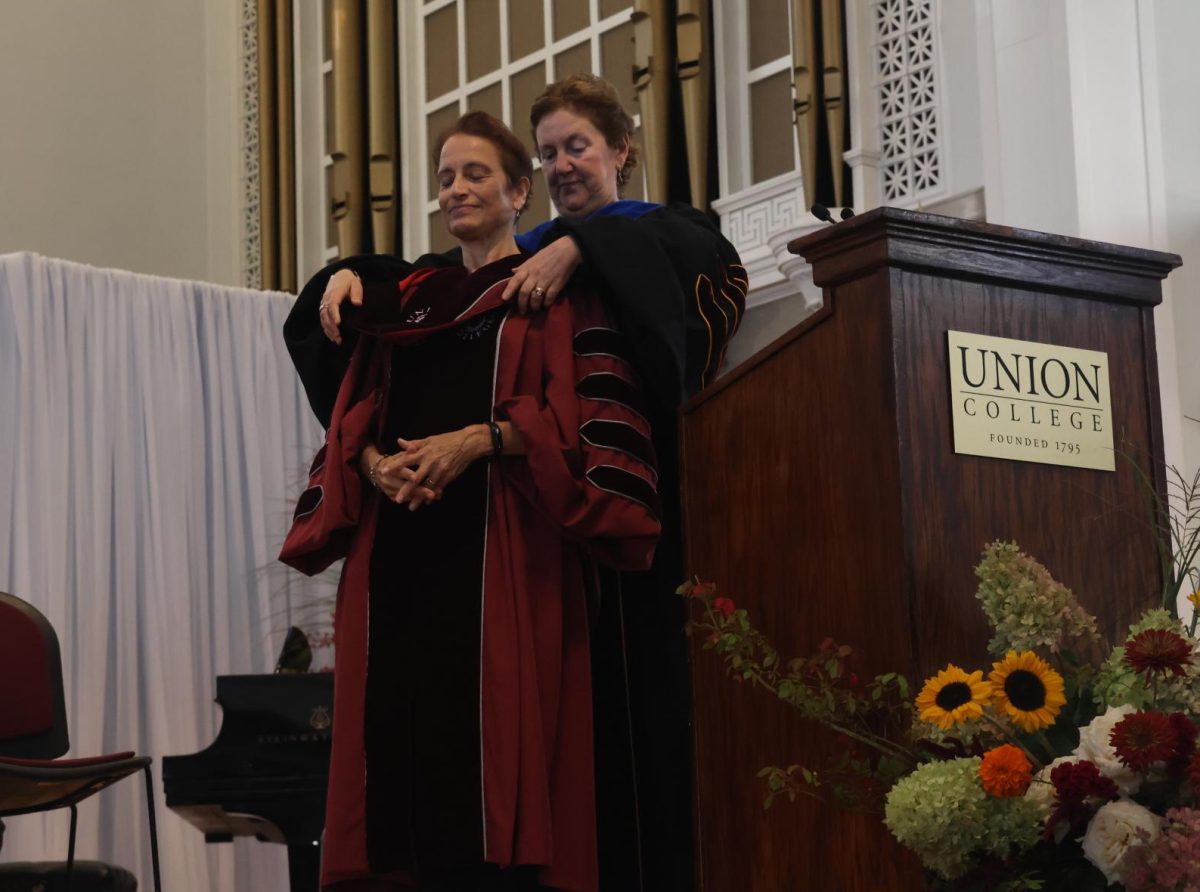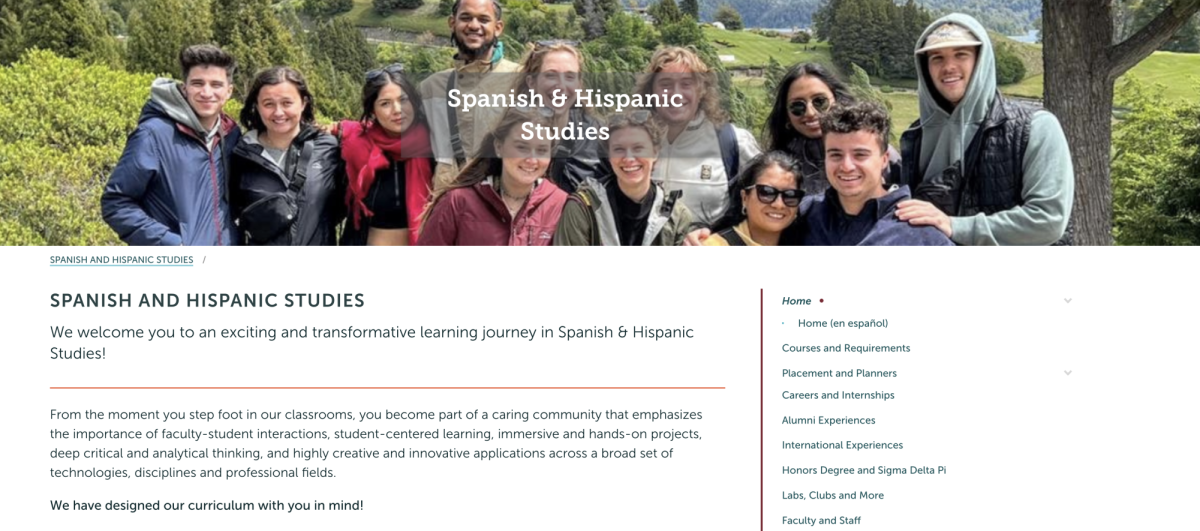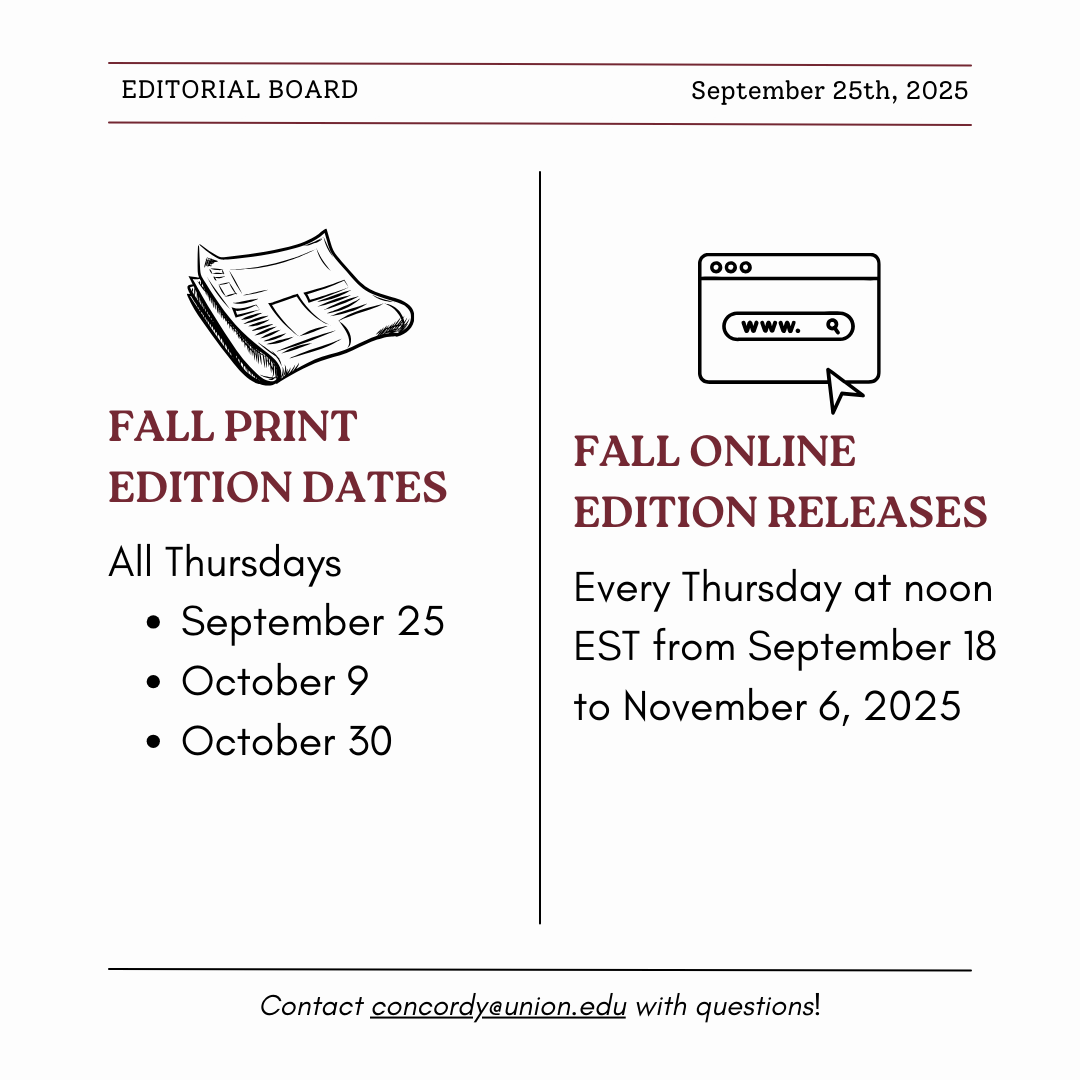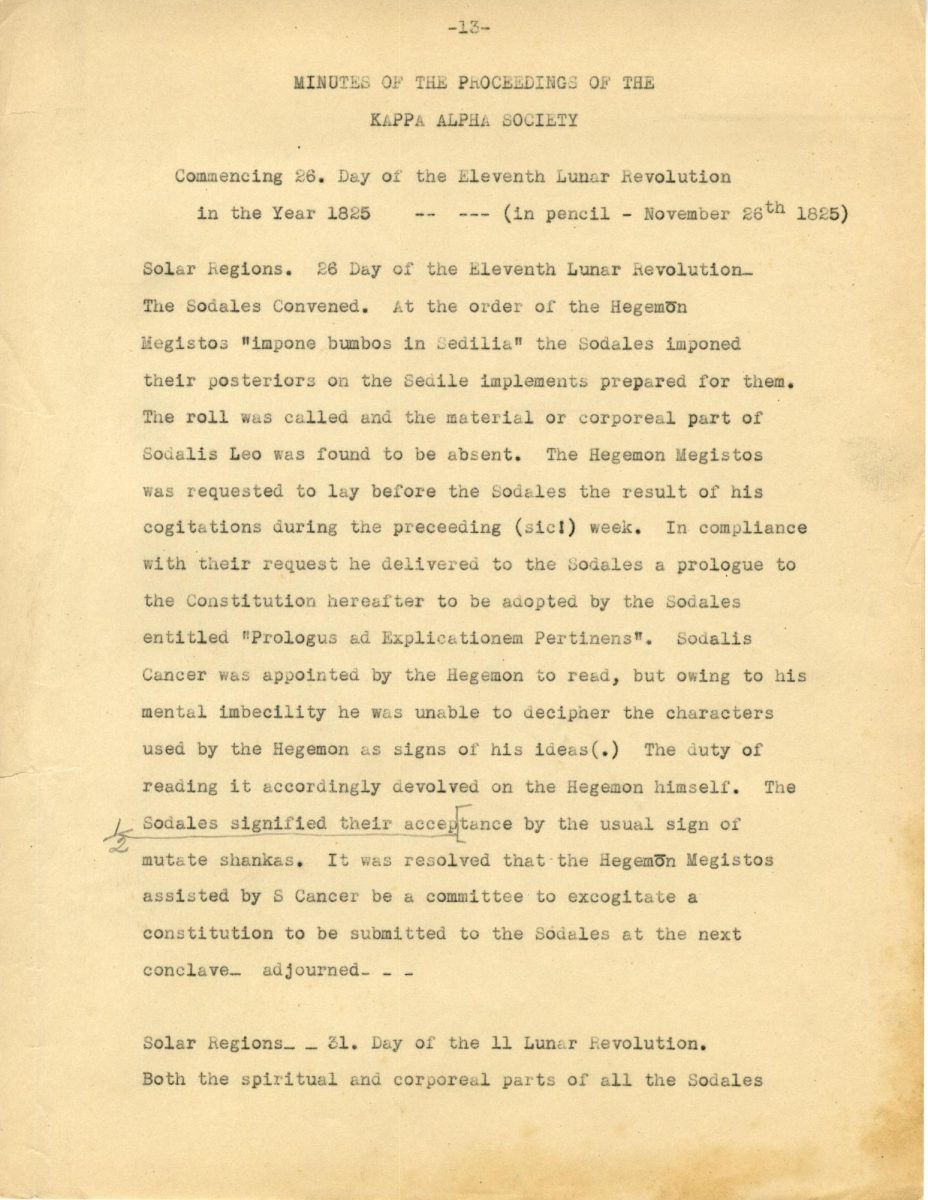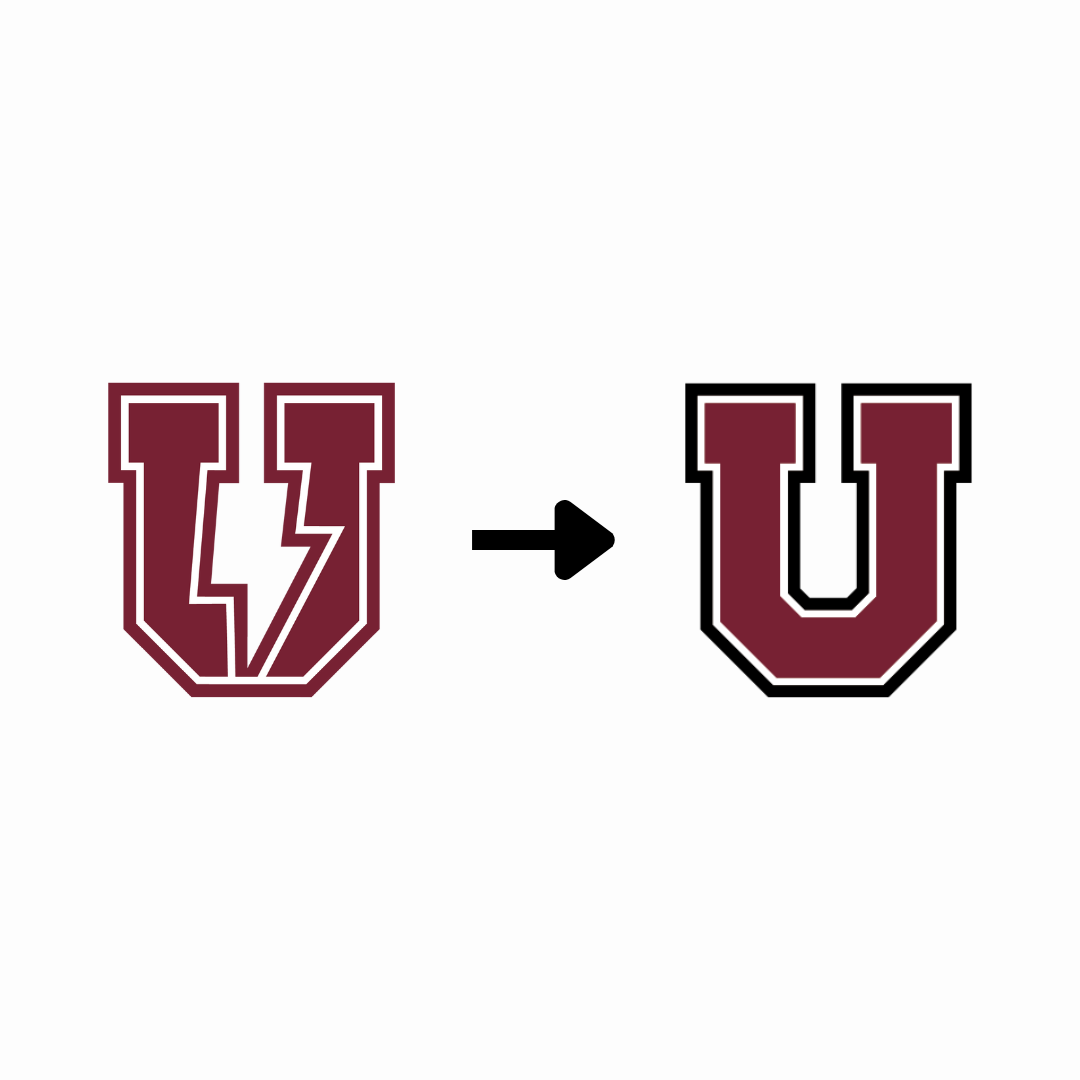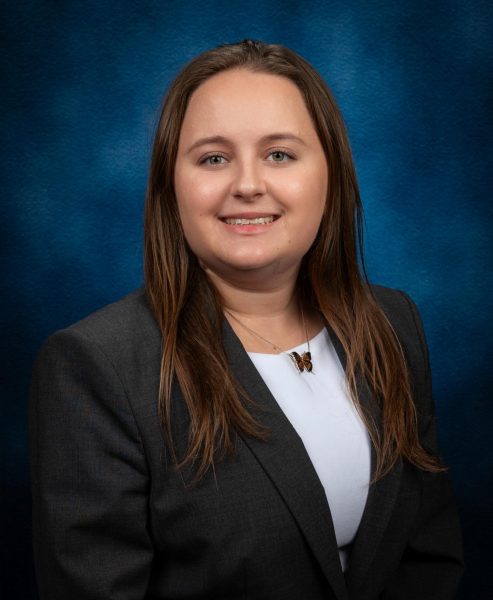On April 9th, the Union community celebrated Easter Sunday. Easter is a Christian festival and celebration of the resurrection of Jesus Christ from the dead. The Concordiensis interviewed Rev. Dr. Timothy Coombs, Union’s Protestant Campus Chaplain, about what Easter means to him, how the campus community celebrates it, and how Union supports students of various faiths and beliefs.
What does Easter mean to you?
To me, Easter is the celebration of the resurrection of Jesus of Nazareth, which is the basis of Christianity. Today, within Christianity, there are a variety of ways to understand what resurrection signifies, such that people have written whole books defining and unpacking its meaning. Given that, let me be clear that Christians do not believe in an immortal soul. All four Gospels, Matthew, Mark, Luke, and John, though they differ slightly in how they relate the story, all agree that Jesus was fully and completely dead on Friday. His heart stopped beating, his breathing ended, and all brain wave activity ceased. The Christian belief is that God raised Jesus from death. The importance of this for Christians is that God defeated the powers of sin and death that condemned and killed Jesus, and God then extends that victory to all to accept as defining their life’s reality. The resurrection tells Christians who trust in God’s resurrecting power that we can live in the hope of knowing that sin and death no longer have to determine our life.
For me, the crucifixion and resurrection is not about “redemptive suffering.” I do not believe God would send or call Jesus to simply “pay the price for us once and for all.” through a premeditated execution. I find that notion to be rather cruel. Instead, I believe that Jesus based his life totally on love, and it was in loving humanity fully that led people in authority, people who had much at stake in the status quo, to want to be rid of him. If anything God vindicated this life of perfect love in the resurrection. Jesus was not a sacrifice as much as he was a fulfillment of what God intended for us.
The resurrection is a matter of faith. It is not a fact, simply because it cannot be proven scientifically. To me, religion and science are siblings focused on different issues or the same subjects just from different perspectives. Science addresses questions that can be answered with hard data. Religion seeks to offer insights and direction on the questions hard data cannot address, such as issues of moral purpose and ultimate meaning.
How do you celebrate Easter with the campus community?
Both the Campus Protestant Ministry (CPM) and the Catholic Student Association encourage the Christian students of Union College to make connections with local church communities. We both tend not to hold regular Sunday services on campus. This week I sent a listing of local Holy Week services in Protestant churches that support CPM to the non-Catholic, Christian students on campus. Hopefully, those that remain on campus over the Easter weekend, though there aren’t very many, will do so. Over the last four years of my chaplaincy, I have found that if students can go home for the Easter weekend, they usually do so.
Given most have gone home, CPM will communicate the story of Jesus’ life on Thursday, April 13 with the movie “Son of Man” at 7:00 PM in the Unity Room. The movie is from South Africa and relates the story of Jesus as if he came to an African country in turmoil in contemporary times. It is a well-done reconception of the life of Jesus that has won numerous film awards.
How does Union’s office of Religious and Spiritual Life support students of various faiths and beliefs?
Union’s office of Religious and Spiritual Life is most cooperative and open to all religious expressions on campus. Though each group is responsible for their own funding for staff and program, Union provides office space access to any agency that follows Union’s accessibility guidelines. Union also provides space for programming for all religious groups. Funding is available for student-led, interreligious activities as well.
This article was originally published in the print edition of Concordiensis on April 13, 2023.


